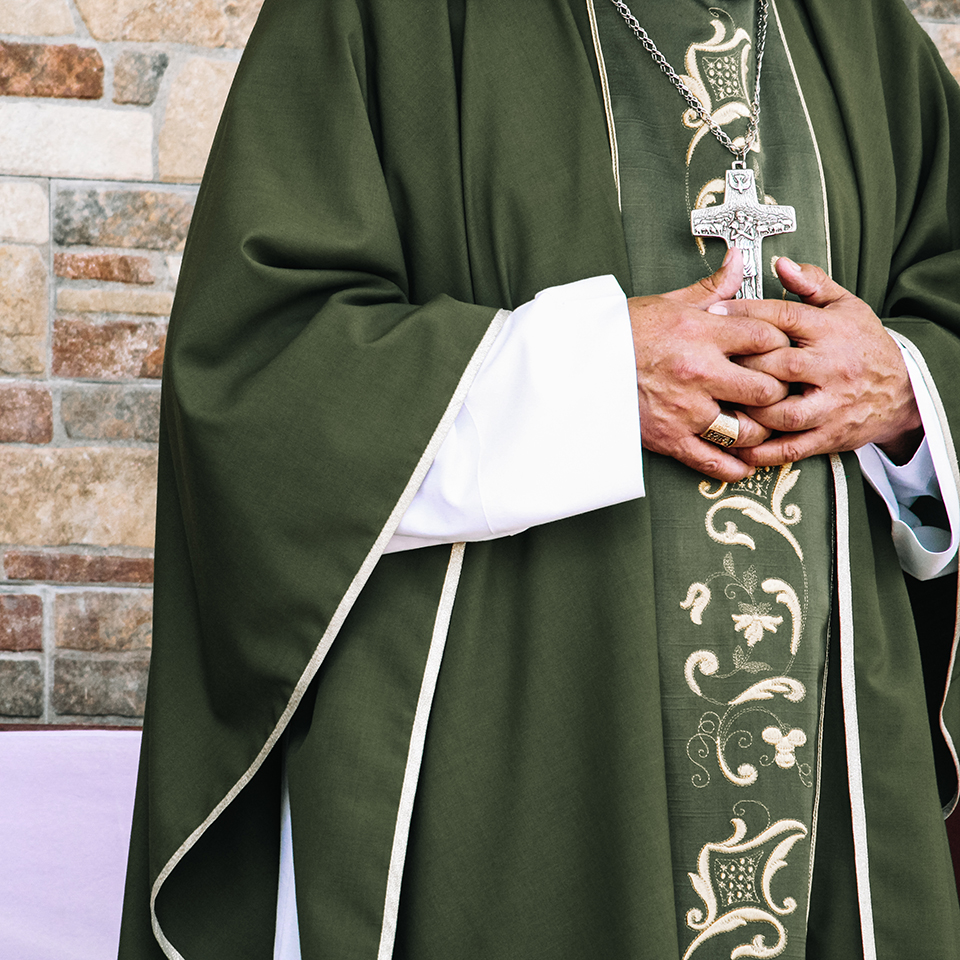The Catholic Church is filled with more treasures than one can discover in a lifetime, and perhaps one of the least appreciated is the liturgical calendar, especially when the days are filled with the all-too-familiar green that represents what we call “Ordinary Time.”
Its distinction confused me when I first entered the Church. Ordinary Time held a connotation of the mundane. I incorrectly understood it as a time to shake off the celebrations of the Incarnation in order to enter into the monotony of the ordinary. The Christmas decorations have been put away, and we return to the plainness of day-to-day life.
Advent was filled with anticipation as we watched, waited, and prayed with all of those so full of expectation at the beginning of the Gospel of Luke. Then came Christmas, the great celebration.
But now is not the time to abandon their stories, but to continue to live and journey with them here and now. In fact, Ordinary Time isn’t meant to be ordinary at all. Rightly understood, it is a time not only to rest from what has passed but also to prepare for what is to come. There is nothing ordinary about a life that has been touched by the reality of God becoming man.
What was life like after the birth of a child? It was anything but “ordinary” for Mary and Joseph, or anyone. All of life had to now fit around this new existence. Everything changed, and for the entire world.
Do you think that Zechariah and Elizabeth led an ordinary life after the Visitation? Did Simeon and Anna leave the temple that day, shaking off the Presentation as a mere return to the ordinary?
The birth of Christ changed their lives forever. They each became part of a community of celebration, a community built on the hope that was manifested within their reality. The foundation of this community was the Incarnation, a hope now fulfilled.
Too often, the Christmas decorations are hastily put away and the entire season is forgotten behind us. The liturgical green of Ordinary Time reminds us that this season is not a season of stagnant, common being. Instead, it is a season of dynamic, extraordinary growth . . . of becoming. That growth is the seed of hope in the Incarnation, watered by the anticipation of Advent, and in full bloom after the Nativity of Our Lord. And now, as that bloom grows and matures, we prepare for the necessary pruning of Lent.
The only way that we can truly find rest in this ordinary season is to wrap our hearts in the unordinary truths of Christmas, like a blanket comforting us on the way to the cross, on the way to Lent.
If we look at the periods of Ordinary Time in this way, we realize that the time spent in the ordinary green pastures helps to make the seasons of penance and gladness that much more fruitful when it is used as essential fuel meant for gratitude, for endurance, and for a steady journey.
In a way, Advent and its anticipations were passive preparation. As I’m writing this, there are two babies growing in my womb. This time of pregnancy is greatly passive. There’s not a lot of interaction, other than the bodily response to life expanding within me. But soon my role will become a lot more active. What seems like months ahead will quickly be a vapor when I am able to hold these children in my arms. Life afterwards will be very active and built around the existence of these children. We began this journey when we found out that we were pregnant, but it continues evermore.
Advent and Christmas and Ordinary Time afterward mimic this same reality for the entire Church. The Church allowed us to enter into almost five weeks of pregnancy, a little more than two weeks of celebrating the birth, and now we are actively accepting the invitation to build our lives around the Child Jesus. He has now been reborn into the life of the entire Church.
The responsibility is profound for Christians in the light of the birth of the Messiah. You get to usher in the Child Jesus into the world. His life radiates in yours and brings light into all of the ordinary places. This is not “ordinary” time in the sense that we understand this word. It’s a time to make the common day-to-day life bright in the reflection of God becoming man, dwelling among us, and forever changing everything.
